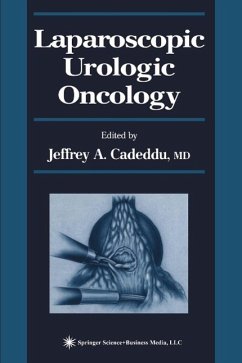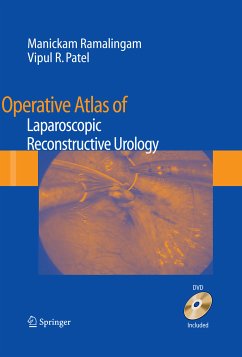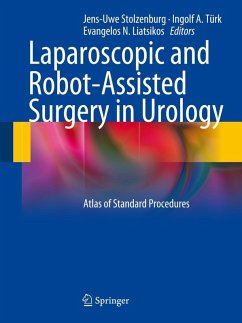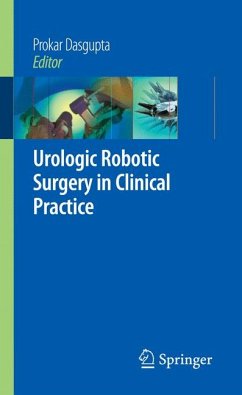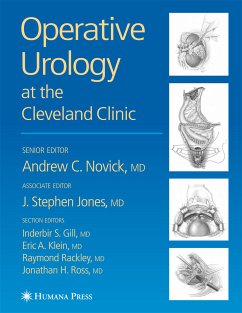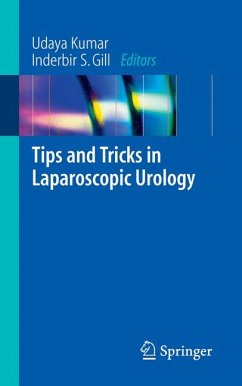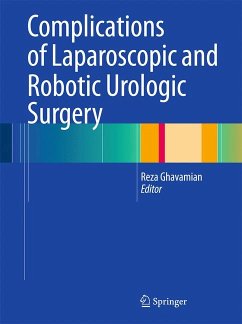
Laparoscopic Techniques in Uro-Oncology (eBook, PDF)
Versandkostenfrei!
Sofort per Download lieferbar
72,95 €
inkl. MwSt.
Weitere Ausgaben:

PAYBACK Punkte
36 °P sammeln!
This utterly comprehensive work covers all of the techniques involved in uro-oncology. These techniques are widely accepted, well established, safe, standardized, reproducible, and teachable. In the last 12 years, the field of laparoscopy has evolved dramatically, and laparoscopy has become an alternative technique, overall accepted per se in the medical community for many indications. The main strength of this book is its focus on current techniques in uro-oncology. The aim is not to divide oncology into two worlds (open surgery versus laparoscopy), but to enlarge the technical proposals, wit...
This utterly comprehensive work covers all of the techniques involved in uro-oncology. These techniques are widely accepted, well established, safe, standardized, reproducible, and teachable. In the last 12 years, the field of laparoscopy has evolved dramatically, and laparoscopy has become an alternative technique, overall accepted per se in the medical community for many indications. The main strength of this book is its focus on current techniques in uro-oncology. The aim is not to divide oncology into two worlds (open surgery versus laparoscopy), but to enlarge the technical proposals, with the same common goal. The book contains black and white drawings only as these are generally more precise and give a clearer understanding. It is, quite simply, essential reading for all urologists interested in laparoscopy as well as urologists in training (residents) or doing a fellowship in Oncology or Minimally Invasive Surgery.
Dieser Download kann aus rechtlichen Gründen nur mit Rechnungsadresse in A, B, BG, CY, CZ, D, DK, EW, E, FIN, F, GR, HR, H, IRL, I, LT, L, LR, M, NL, PL, P, R, S, SLO, SK ausgeliefert werden.




